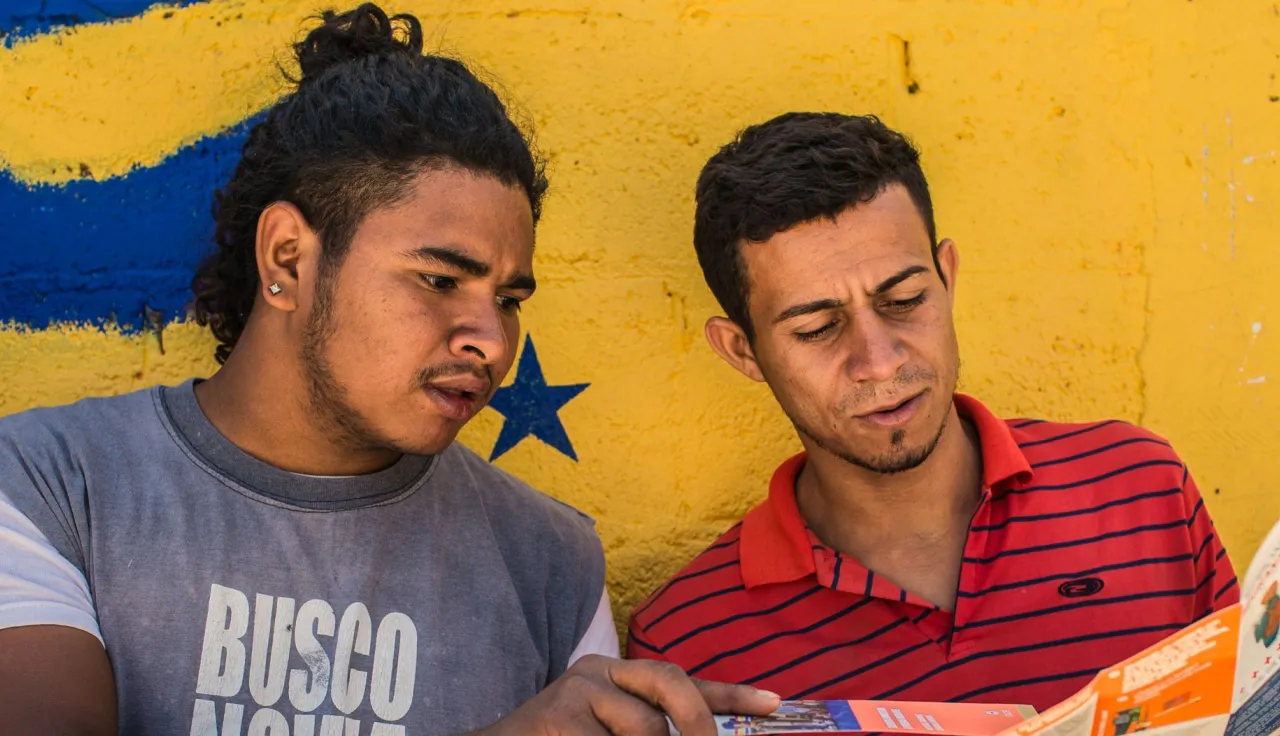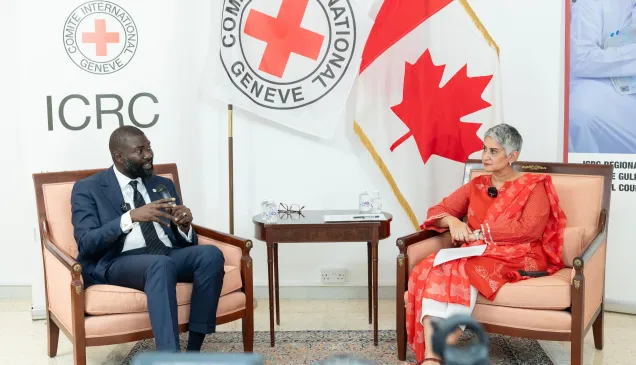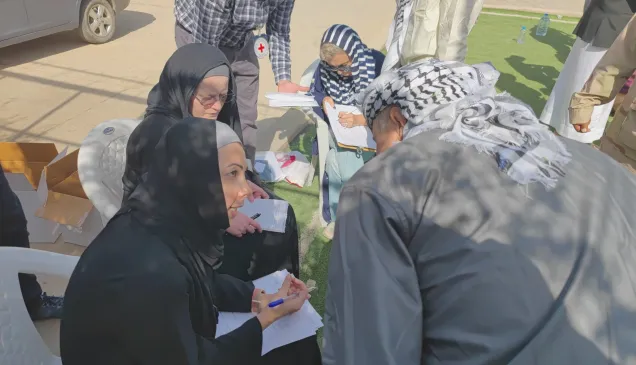Presenting the report, Jordi Raich, the head of the regional delegation for Mexico, Central America and Cuba, noted: "In the midst of the global crisis triggered by the coronavirus disease (COVID-19) pandemic, we urgently need, now more than ever, impartial and independent humanitarian work to alleviate suffering, especially of the most vulnerable people and communities."
While the world focuses on the challenge of the pandemic, the problem of violence and its humanitarian impact on many people in Mexico and Central America has not disappeared; in fact, that impact is felt more than ever during the current crisis. As Raich explained, "Marginalized communities and those affected by violence will suffer the most from the long-term impact of the pandemic. We need coordinated action to protect them. Any measures taken should take into account the need for non-discrimination and the specific rights and needs of the most vulnerable people and communities."
The 2020 report provides an overview of the work of the ICRC in the region in cooperation with National Societies, national authorities and civil society organizations. It also highlights the needs of people trying, in the face of adversity, to stay safe and maintain their dignity, to provide for their families and, in many cases, to find their missing loved ones.
The ICRC's humanitarian activities in Mexico and Central America are primarily aimed at helping migrants, people deprived of their liberty, the families of missing persons and communities particularly affected by violence. We have permanent offices in the region in Mexico City (Mexico), Tegucigalpa and San Pedro Sula (Honduras), San Salvador (El Salvador), Guatemala City (Guatemala) and Managua (Nicaragua).
In 2019, we provided direct assistance and support to more than 207,600 people in the region (90,450 in Mexico, 45,900 in Honduras, 16,357 in Nicaragua, 22,844 in El Salvador and 32,132 in Guatemala). As part of our work, we provided health care support to communities affected by violence and to migrants, helped to build community infrastructure and shelters, supported efforts to search for missing people, helped to strengthen the resilience of communities, provided training to public officials, and engaged in dialogue with and provided advisory services to the authorities and other stakeholders to influence public policies that anticipate and respond to the needs of affected persons.
Main humanitarian concerns
Migrants
The ICRC seeks to mitigate the humanitarian impact of the violence that migrants face in transit. Many migrants lose touch with their families, fall victim to violence or accidents, disappear or die. We also closely monitor the humanitarian impact of recent changes to national migration policies.
In addition to ensuring that migrants' rights are upheld and providing them with health care and protection services, the ICRC helps migrants to stay in touch with their families and thus reduce their risk of going missing. In 2019, National Societies facilitated 149,000 free telephone calls in Mexico, Guatemala and Honduras. In addition, 165 migrant amputees, migrants in transit and returnees received prostheses, orthoses and physical rehabilitation support.
Missing persons
The ICRC delegation has tried to address the problem of missing persons and to help their families. In Mexico and Central America, thousands of people are still missing as a result of previous armed conflicts, and new disappearances linked to violence or migration processes are recorded every day.
In that regard, Raich noted, "There is a need for effective search mechanisms, coordinated action at the regional level and quality forensic processes to find missing people. Each case gives rise to multiple humanitarian needs, which can increase the vulnerability of people searching for missing loved ones."
People deprived of their liberty
To help people deprived of their liberty, the ICRC organizes regular visits to ensure that detainees' rights are respected. Last year, we made more than 74 visits to detention centres throughout the region, including in Honduras, Nicaragua, Guatemala, El Salvador and Mexico, to help more than 7,772 people deprived of their liberty.
The situation in Mexico
Speaking on the humanitarian work carried out in Mexico, Martin de Boer, deputy head of the regional delegation, stressed that the increase in the number of homicides recorded last year in Mexico has also had humanitarian consequences, including disappearances, internal displacement, restrictions on movement, extortion, and difficulties in accessing education and health services.
Referring to the problem of armed violence, Boer said, "Armed groups continue to be ready and willing to use violence to achieve their aims, spreading fear in the communities where they operate, with both a visible and an invisible impact on the mental health of local people. In such situations, we try – as part of our mandate – to mitigate the humanitarian impact of armed violence on people's lives."
* * *
Founded in 1863, the ICRC is an independent, neutral and impartial humanitarian organization that provides protection and humanitarian assistance to victims of armed conflict and other violence and promotes respect for international humanitarian law.
More information about the annual report for Mexico and Central America:
- México: https://www.icrc.org/es/document/informe-de-actividades-2020-mexico
- América Central: https://www.icrc.org/es/document/america-central-dilemas-humanitarios-en-el-nuevo-decenio
For more information:
María Cristina Rivera, Communication Coordinator, ICRC Mexico and Central America: 52 5527551794
Ana Olivia Langner, Public Communication Officer: 52 5537176427




